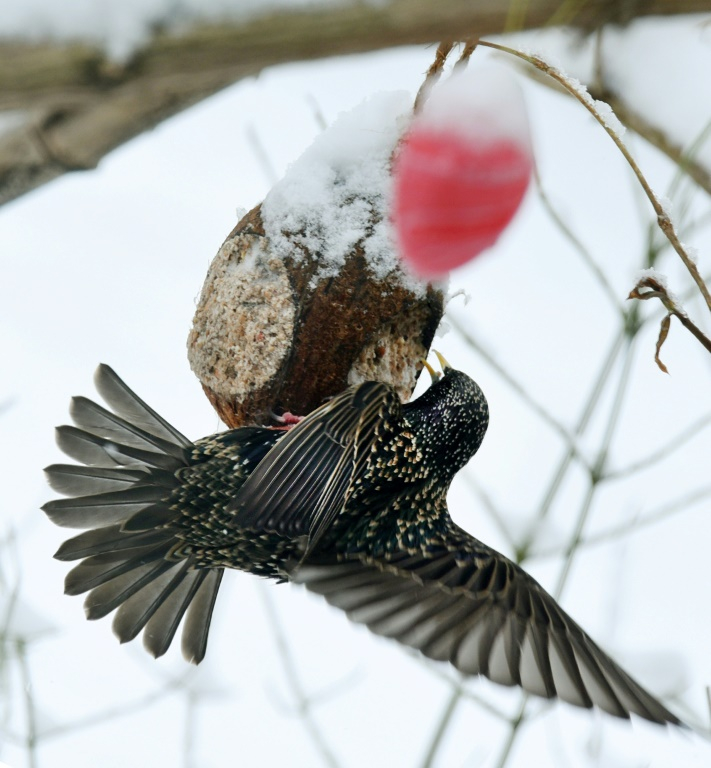Bird populations in rural France ‘collapsing’

A starling finds grains in a garden, but many once-common birds are an ever rarer sight, with a study showing some species’ numbers have slumped in Europe amid crumbling insect numbers as researchers point to intensive use of pesticides. Image: Waltraud Grubitzsch – dpa/AFP/File
Bird populations across an eerily quiet French countryside have collapsed, on average, by a third over the last decade-and-a-half, alarmed researchers reported on Tuesday.
Dozens of species have seen their numbers decline, in some cases by two-thirds, the scientists detailed in a pair of studies, one national in scope and the other covering a large agricultural region in central France.
“The situation is catastrophic,” said Benoit Fontaine, a conservation biologist at France’s National Museum of Natural History and co-author of one of the studies.
“Our countryside is in the process of becoming a veritable desert,” he said in a communique released by the National Centre for Scientific Research (CNRS), which also contributed to the findings.
The common white throat, the ortolan bunting, the Eurasian skylark and other once-ubiquitous species have all fallen off by at least a third, according to a detailed, annual census initiated at the start of the century.
A migratory songbird, the meadow pipit, has declined by nearly 70 percent.
The museum described the pace and extent of the wipe-out as “a level approaching an ecological catastrophe.”
The primary culprit, researchers speculate, is the intensive use of pesticides on vast tracts of monoculture crops, especially wheat and corn.
The problem is not that birds are being poisoned, but that the insects on which they depend for food have disappeared.
Deteriorating eco-systems
“There are hardly any insects left, that’s the number one problem,” said Vincent Bretagnolle, a CNRS ecologist at the Centre for Biological Studies in Chize.
Recent research, he noted, has uncovered similar trends across Europe, estimating that flying insects have declined by 80 percent, and bird populations have dropped by more than 400 million in 30 years.
Despite a government plan to cut pesticide use in half by 2020, sales in France have climbed steadily, reaching more than 75,000 tonnes of active ingredient in 2014, according to European Union figures.
“What is really alarming, is that all the birds in an agricultural setting are declining at the same speed, even ‘generalist’ birds,” which also thrive in other settings such as wooded areas, said Bretagnolle.
“That shows that the overall quality of the agricultural eco-system is deteriorating.”
Figures from the national survey — which relies on a network of hundreds of volunteer ornithologists — indicate the die-off gathered pace in 2016 and 2017.
Drivers of the drop in bird populations extend beyond the depletion of their main food source, the scientists said.
Shrinking woodlands, the absence of the once common practice of letting fields lie fallow and especially rapidly expanding expanses of mono-crops have each played a role.
“If the situation is not yet irreversible, all the actors in the agriculture sector must work together to change their practices,” Fontaine said. NVG
RELATED STORIES:
Fewer migratory birds seen at Candaba Swamp this year